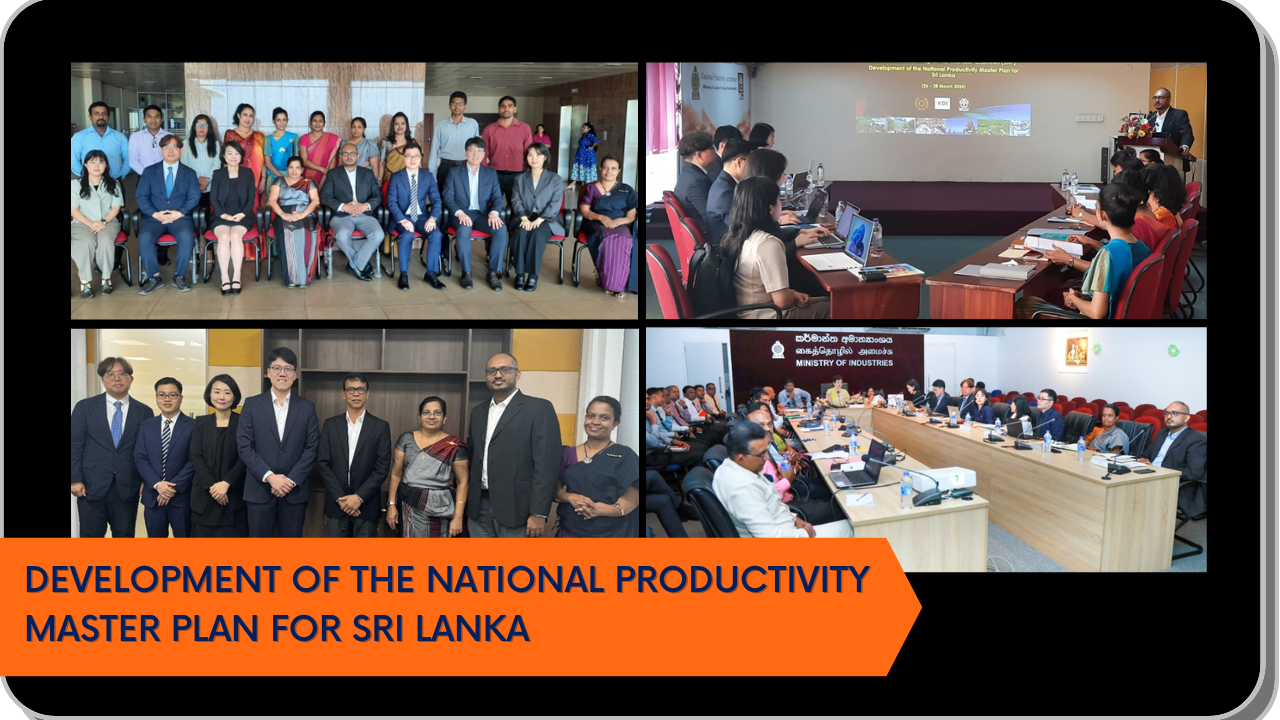
Select Page

Productivity is vital for socioeconomic progress, fostering national prosperity and growth. Since 2018, the Asian Productivity Organization (APO) has spearheaded efforts to assist member countries in creating comprehensive National Productivity Master Plans through its Specific National Program for Member Countries (SNP). To date, six member countries, Bangladesh, Cambodia, Fiji, Lao PDR, Pakistan, and Vietnam, have utilized these plans to tackle obstacles impeding their productivity growth and strategic advances.
Sri Lanka’s productivity has shown notable growth, particularly in sectors like tourism and services, over the past decade. However, the COVID-19 pandemic led to economic contraction and increased poverty. In response, in December 2023 Sri Lanka initiated a transformative effort to develop its National Productivity Master Plan supported by the APO Secretariat, with technical assistance from the Korea Development Institute (KDI). This initiative aims to integrate productivity into the economic development agenda, serving as a blueprint to unlock the nation’s full potential and drive sustainable economic growth.
A mission was undertaken by the APO Secretariat and KDI in Colombo, 26–28 March, to share progress in the master plan research, gather data, and discuss the implementation plan with the National Productivity Secretariat (NPS), Ministry of Labour and Foreign Employment, and other stakeholders. During the visit, the delegation conducted a comprehensive assessment of Sri Lanka’s current productivity landscape and SWOT analysis and proposed strategic directions for productivity enhancement.
In-depth surveys and discussions were also held with key stakeholders from various ministries, including the Ministries of Labour and Foreign Employment, Fisheries, Industries, Agriculture, and Tourism. The discussions were guided by high-level government officials including the Secretary of the Ministry of Labour and Foreign Employment, Secretary of the Ministry of Fisheries, and Secretary of the Ministry of Industries. They all underscored the critical role of the master plan in overcoming sectoral hurdles and expressed support for its development. The visit also identified issues involving infrastructure, capital investment, digitalization, capacity building, innovation, and regulatory reform. While formidable, these challenges offer opportunities for strategic interventions and policy innovations, guiding Sri Lanka toward enduring productivity growth.
Following the visit, there will be ongoing refinement of the preliminary analysis of the master plan, encompassing strategies, targets, and directions. A mid-term version of the master plan will subsequently be presented to stakeholders in Sri Lanka during the second visit, preceding its dissemination for broad-based adoption.